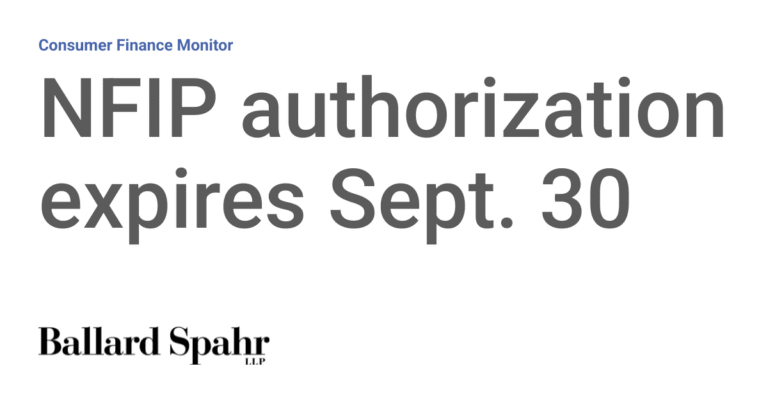If Congress does not reauthorize the National Flood Insurance Program (NFIP) by September 30, major parts of the program will expire—a lapse that could cause major problems in the mortgage industry.
In past NFIP lapses, borrowers were not able to purchase flood insurance to close, renew or increase loans secured by property that required flood insurance. The Congressional Research Service (CRS) estimated that during a lapse in June 2010, each day more than 1,400 home sale closings were canceled or delayed. That represents more than 40,000 sales each month
The House has passed. H.R. 5371, legislation that would fund much of the government—and reauthorize the NFIP– until Nov. 21. However, the Senate has rejected that legislation.
If the NFIP is allowed to lapse, the CRS has said that flood insurance contracts entered into before the expiration would continue until the end of their policy term of one year. The authority for the NFIP to borrow funds from the U.S. Treasury would be reduced from $30.425 billion to $1 billion.
Despite repeated efforts, Congress has been unable to enact a long-term NFIP reauthorization. Traditionally, the NFIP has been reauthorized in must-pass short-term and long-term spending measures. The CRS said that the NFIP has been reauthorized in such legislation 33 times since 2017. The last long-term reauthorization was the Biggert-Waters Flood Insurance Reform Act of 2012.
Members of Congress have pushed legislation to reauthorize the program, but those efforts have failed. Most recently, in August, Senators, Bill Cassidy, R-La. and Cory Booker, D-N.J. sought stakeholder comments on how to improve the NFIP.


